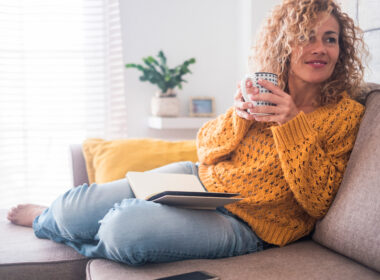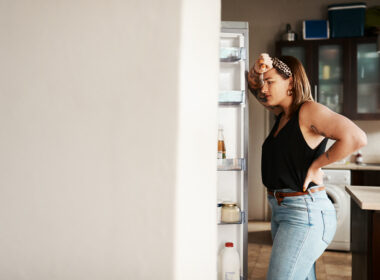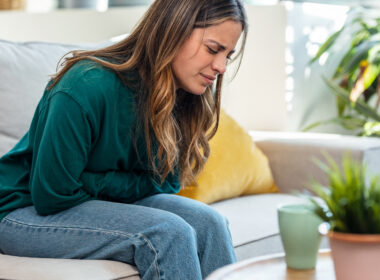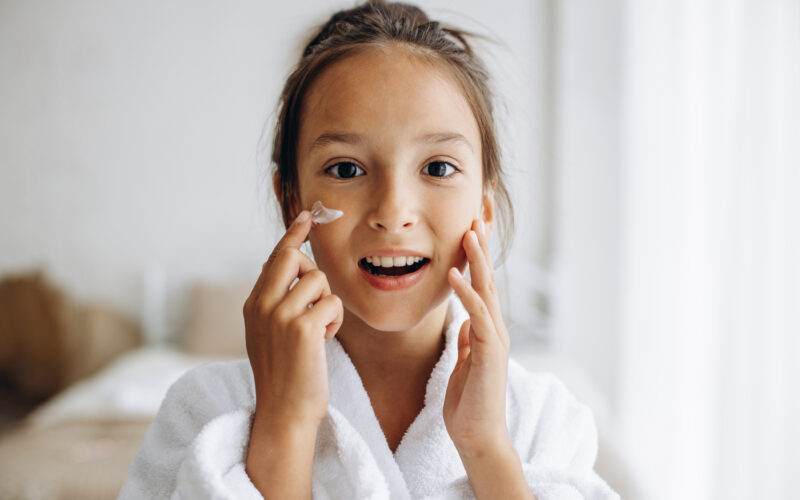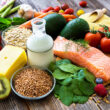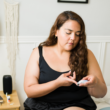Walk into a Sephora or an Ulta today and you might notice an influx of a new demographic of shoppers: young teens or preteens. I don’t mean high school girls shopping for new mascara and concealer (been there!), but instead a much younger girl on the lookout for expensive skincare products. From cleansers and scrubs to retinol creams and vitamin C serums, increasingly younger girls are buying it all. But where did these #kidsatsephora come from and why are they here?
Adult women are now beginning to complain about the rise of these “Sephora Babies” — the preteens rummaging through beauty store shelves and destroying tester products and displays, all in the name of creating the perfect skincare routine. Teens with nary a wrinkle are also turning to products marketed as “anti-aging,” with harsh ingredients not meant for young skin. Meanwhile, those of us in our 20s or 30s are starting to obsess over how old we look. It’s no wonder teens believe they might do good to pick up a bottle of retinol cream before they start showing smile lines, too.
What’s behind the rise of #KidsatSephora and how did we get here?
“Get ready with me using Drunk Elephant,” says Haven Garza, a seven year old beauty influencer on TikTok (yes, you read that age right). Haven wears a baby pink t-shirt and a plush black headband, used commonly by skincare gurus to protect their hair as they apply their products. Her twin sister jumps on the bed and dances behind her as Haven applies product after product on her face, talking about how she’s excited to go on a beach trip with her Dad and find seashells.
Haven is obviously adorable, but the viewer can’t help but wonder why she’s using Drunk Elephant, a high-end beauty brand that uses potent formulations in its skincare with ingredients like retinoids and acids. It’s quite a step above the drugstore bottle of facial cleanser that many of us began using once we began getting acne. And in Haven’s case, she doesn’t even have acne. Her skin is perfectly smooth, like that of most seven year olds.
Skincare for…fifth graders?
Haven and her twin sister Koti are not the only preteens who are employing expensive skincare on a daily basis. This influencer gives her recommendations for skincare routines for fifth graders, which includes refining lotions and vitamin C serums. This adult Sephora employee offers her own guidance on skincare for girls aged 10-15, which thankfully focuses on cleansing and moisturizing, but includes trendy and expensive brands like Glow Recipe or Supergoop. And in this TikTok, a young teenager smears half a dozen creams, oils, and serums on her face while chatting about how she’s excited for summer.
#KidsatSephora is the younger cousin to Gen Z and Millennials’ obsession with anti-aging products
While the girl in the latter video does not discuss the reason she’s using so many different skincare products, many teens and college-aged young adults have begun to hyperfocus on a problem which has typically only plagued the minds of those over forty: aging. A recent consumer analysis found that over half of 18-25 year old women are looking to add anti-aging products into their routine. Those underage are also beginning to stress over wrinkles, like this Reddit commenter who says she’s experiencing premature aging at 16 or this teenager who is considering Botox to take care of her forehead wrinkles. “I’m SO scared of aging,” one TikTok user says. “I’m 15 in 2 days and I’m already using retinol, vitamin C and gua sha with my sunscreen.”
What is the #guessmyage challenge?
Although it might seem bizarre for someone still in high school to obsess over whether or not she has fine lines and wrinkles, the impetus for this problem has to come from somewhere. Anti-aging beauty products are predicted to earn over $88 billion in global sales by 2026, and they’re being bought up by women of all ages. Those on the older end of Generation Z (who are now in their mid- or late-twenties) believe that they are ‘aging like milk’, as they experience fear that they are showing their age earlier than they should. These insecurities are what lead to the #guessmyage challenge on TikTok, in which women typically in their 20s or 30s film a video (often without makeup) and ask commenters to guess how old they are. You can probably guess what the comments are like.
Women in their late-30s and 40s are also adding to the anti-aging discourse online, such as this video from an older millennial who warns those under 35 that “sudden and dramatic aging” is coming for them too. She then tells younger women to be diligent about their use of sunscreen and retinoids, and invest in chemical peels, microneedling and other beauty treatments. Young women should also act like a “vampire” and stay out of the sun, she advises.
Is it any wonder that 19-year-olds are applying anti-aging night creams and 12-year-olds are investing in every serum they can get their hands on when the women they’re supposed to look up to are decrying the natural process of aging? The underlying message that these adult women is sending to their younger counterparts is that the value of a woman is not found in who she is and the life she’s lived, but instead her ability to look as if she hasn’t lived a life.
Ways to change one’s appearance to look younger have been around since ancient times, but the fact that women and girls who aren’t even thirty (or twenty!) are hand-wringing about crow’s feet or frown lines is undoubtedly concerning. Aging is a natural part of a person’s life, and all of the expensive skincare and beauty treatments in the world aren’t going to reverse the innate changes a body goes through over time.
Isn’t it good to take care of your skin from a young age?
Beyond trying to halt the aging process before it even begins, teens and preteens are also using skincare to try and fix problems common to their age, like acne. There is immense benefit to basic skincare such as washing your face daily, using moisturizer if your skin is dry, and avoiding touching blemishes on your face. But many of the teens hopping on the latest skincare trends are going beyond what is merely helpful for typical teenage acne, using products that are not meant for young skin. Many of the popular skincare ingredients like retinol, exfoliants, and vitamin C are too potent for young skin and can be damaging to the skin barrier, according to dermatologists. This is because the skin barrier is not fully formed when you are a child or teen, and it’s easy to develop allergies to some of these ingredients.
Ranelle Hirsch, MD, a dermatologist from Boston says that the expensive and trendy skincare items are completely unnecessary for young people. “I pare down every one of these kids’ routines. The kids come to me with breakouts, and I’m not treating them; I’m not medicating them. I just make them stop using all the crap they’ve been playing with,” she told Women’s Health Magazine.
Here’s how to respond if your tween or teen wants to start using skincare products
If you’re a teen or parent of a teen or tween looking for skincare products, know that the simplest routine is most likely the best. A choice of products like these might be useful, sticking to just a basic cleanser, moisturizer, and sunscreen. Anything beyond that really isn’t necessary unless it’s prescribed by a doctor.
Not only can more elaborate skincare routines be damaging to a young girl’s body, but they also teach her the wrong message about her value. Millions of girls, even those at the tender age of 7 like Haven, are being told via social media that they should be buying (or begging their parents to buy) expensive skincare products to make them more beautiful. Not only that, but these #KidsatSephora are being told by women who are meant to be their mentors and role models that they should do everything they can to prevent looking older, as if their youth is their most valuable possession. That this is coming at a time when teen mental health is already at an all-time low makes the trend doubly concerning.
Here’s what the #KidsatSephora need more than expensive face creams
What teens (and tweens) need is not another product fueling their insecurities, but instead a strong sense of self-worth in the person they were created to be — which, for young girls, means an affirmation of their feminine dignity, regardless of what their skin looks like. These girls should be affirmed in their desire to look and feel their best, but given the tools (like those found in Natural Womanhood’s Mothers of (Pre) Teens online body literacy course!) to do so in authentic way that promotes their health and preserves their innocence.
It’s immensely important for young people to have the ability to grow up without the overarching influence of social media, which only serves to give them false, distorted views of who they are or should be. Teens and preteens need strong communities of people, including their family, to support them through adolescence — especially older women who have walked the path themselves. Somehow, I don’t think Drunk Elephant sells that at Sephora.

